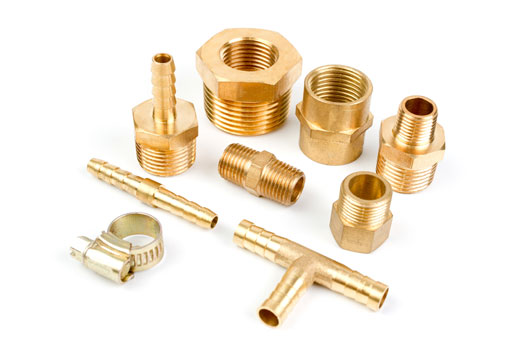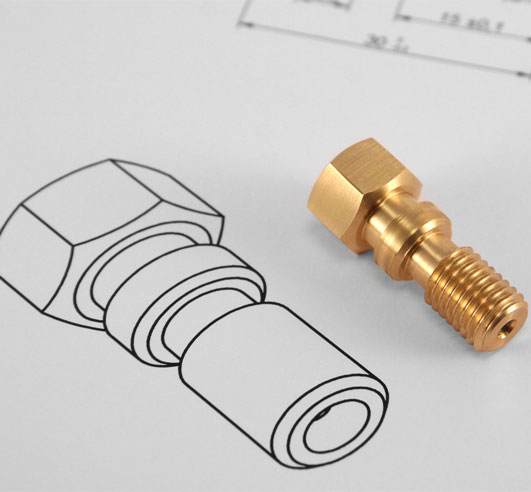Quality, precision, and efficiency drive the manufacturing industry's ever-evolving landscape. Among the numerous materials used in creating parts and components, brass stands out with its unique characteristics, making it a versatile and popular choice in various industrial applications. Computer Numerical Control, or CNC machining, further elevates the significance of brass by enabling accurate and repeatable production of intricate parts. This article delves into the world of brass CNC machined parts, highlighting the material's properties, applications, and the advantages that come with this advanced machining process.
The Wonders of Brass: Background, Proportion, and Attributes
Brass is an alloy composed primarily of copper and zinc, with copper being the dominant element. One of its defining characteristics is its versatility, which is owed to the varying proportions of copper and zinc. The varying content of these two elements in brass gives the alloy a diverse range of properties, including differences in color, ductility, malleability, and corrosion resistance. By altering the percentage of each component, manufacturers can create brass alloys that cater to specific application requirements.
The copper content in brass generally ranges from 65% to 90%, while the zinc content ranges between 10% and 35%. When subjected to mechanical processes, brass exhibits excellent machinability. In addition to copper and zinc, certain applications might call for brass alloys with other trace elements like lead, silicon, and aluminum, bolstering the material's specific properties.
Moreover, a remarkable quality of brass is its antimicrobial and antifungal properties. This benefit adds to its value across many sectors as such features are highly sought-after in various applications like plumbing, medical equipment, and marine hardware.
Industrial Applications of Brass Components
The diversity of brass' mechanical and chemical properties translates into a myriad of applications across numerous industries. From automotive and electrical to consumer goods and aerospace, brass components are consistently valued for their reliability, functionality, and aesthetic appeal. The following examples exemplify the significance of brass components in these industries:
Automotive and Transportation
Automotive manufacturers utilize brass for a wide range of applications, including valves, locks, bearings, engine components, and connectors. This is driven by the alloy's exemplary combination of corrosion resistance, thermal conductivity, and wear resistance. Moreover, brass enhances aesthetic appeal and adds an element of distinction to luxury vehicles.
Electronics and Electrical
Brass has an integral role in the electronics and electrical industry because of its excellent electrical conductivity. Brass components such as connectors, sockets, and switches outperform alternatives due to their durability, temperature resistance, and relatively low cost.
Plumbing and Pipe fittings
The plumbing and pipe fittings sector is a significant consumer of brass components. Fittings made from this alloy are robust, resist corrosion, and have antibacterial properties, making them excellent for both domestic and commercial setups.
Consumer Goods
Brass adorns everyday items like door handles, light fixtures, musical instruments, and decorative hardware. Its allure lies not only in its appearance but also in its durability and resistance to wear and tear.
The Art of CNC Machining and Brass Components
CNC machining's programmable automation and computer-aided design (CAD) capabilities transformed the manufacturing industry by enabling the accurate and efficient production of intricate parts. Furthermore, it reduces human error and accelerates production time, leading to cost-effective manufacturing processes and improved parts quality.
When brass meets CNC machining, the result is a union of material excellence and cutting-edge technology. Some of the key benefits of CNC machining brass components are:
Precision and Accuracy
The CNC machining process guarantees tightly controlled tolerances, dimensional accuracy, and high-quality surface finishes in the produced components. As a result, manufacturers can consistently produce complex brass parts that adhere to stringent industry standards.
Flexibility and Scalability
The programmable nature of CNC machines allows for rapid adjustments and tooling changes, making it possible to produce a wide range of products or adapt to product revisions without delays. Additionally, this technology supports both low-volume and high-volume production runs, providing scalability to companies at various stages of growth.
Speed and Efficiency
CNC machines maintain a constant high-speed operation without fatigue. This trait directly benefits the consistency of quality and reduces production time. Moreover, CNC machines can automatically switch between tools and perform multiple operations such as drilling, milling, and turning without human intervention, further emphasizing efficiency.
Proven Reliability
CNC machining has been extensively adopted by companies within various industries due to its proven reliability, accuracy, and repeatability. As a result, businesses that utilize CNC machined parts benefit from reputation enhancement.
Marrying the incredible properties of brass with the capabilities that CNC machining offers, manufacturers worldwide can produce brass components with high precision, detail, and efficiency. The resulting demand for brass CNC machined parts is a testament to the versatility and appeal of this material, as well as the efficacy and consistency provided by the advanced machining process. By understanding the intricacies of brass and the advantages of CNC machining, manufacturers can continue to push the boundaries of innovation while meeting the challenges of the industry head-on.
brass cnc machined parts







